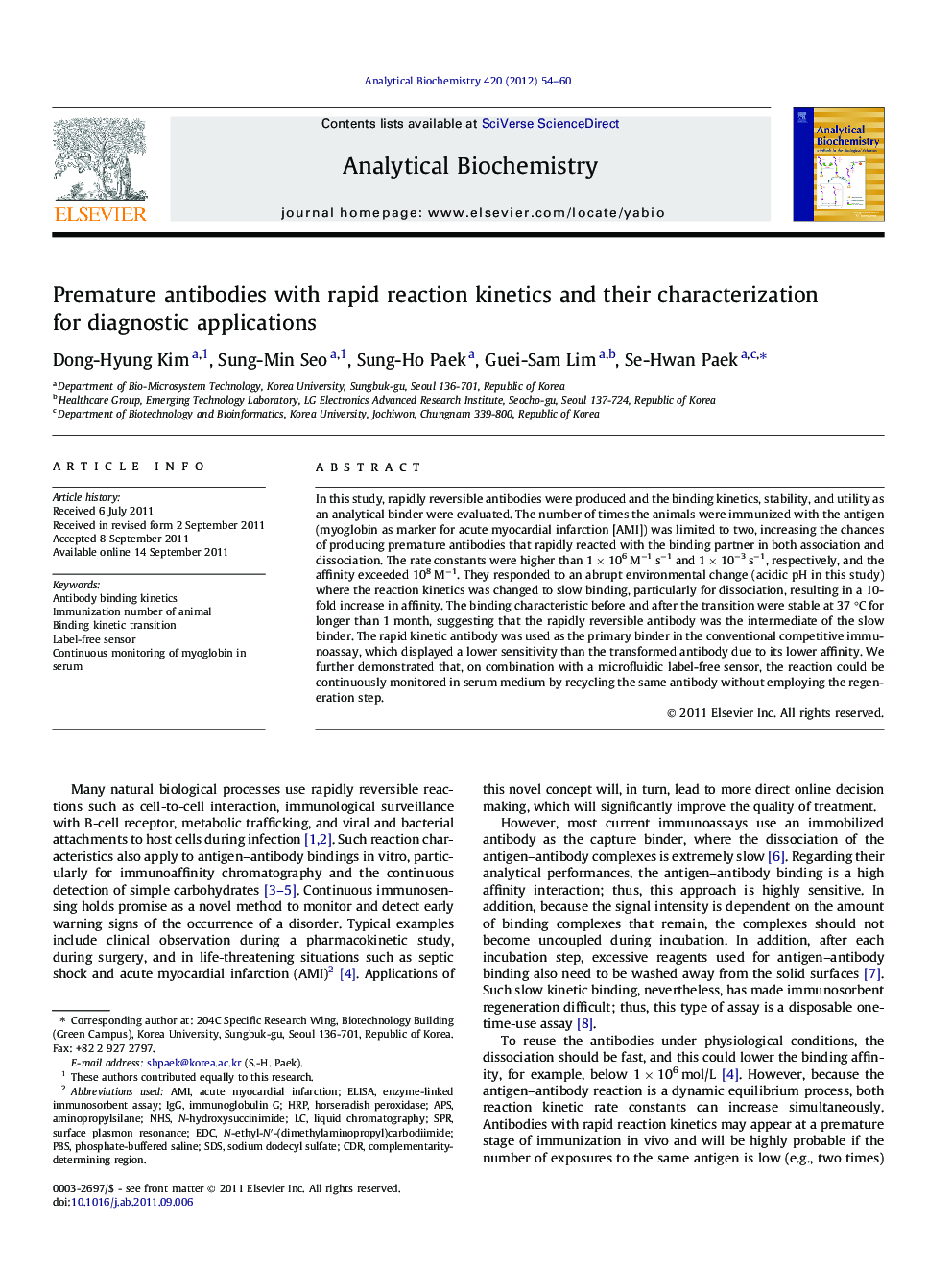| Article ID | Journal | Published Year | Pages | File Type |
|---|---|---|---|---|
| 1174188 | Analytical Biochemistry | 2012 | 7 Pages |
In this study, rapidly reversible antibodies were produced and the binding kinetics, stability, and utility as an analytical binder were evaluated. The number of times the animals were immunized with the antigen (myoglobin as marker for acute myocardial infarction [AMI]) was limited to two, increasing the chances of producing premature antibodies that rapidly reacted with the binding partner in both association and dissociation. The rate constants were higher than 1 × 106 M−1 s−1 and 1 × 10−3 s−1, respectively, and the affinity exceeded 108 M−1. They responded to an abrupt environmental change (acidic pH in this study) where the reaction kinetics was changed to slow binding, particularly for dissociation, resulting in a 10-fold increase in affinity. The binding characteristic before and after the transition were stable at 37 °C for longer than 1 month, suggesting that the rapidly reversible antibody was the intermediate of the slow binder. The rapid kinetic antibody was used as the primary binder in the conventional competitive immunoassay, which displayed a lower sensitivity than the transformed antibody due to its lower affinity. We further demonstrated that, on combination with a microfluidic label-free sensor, the reaction could be continuously monitored in serum medium by recycling the same antibody without employing the regeneration step.
